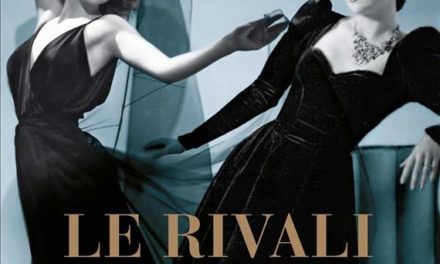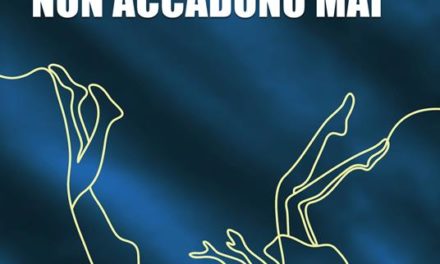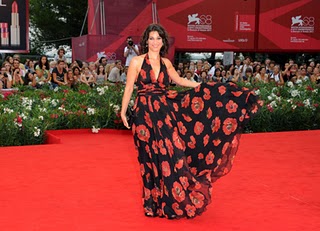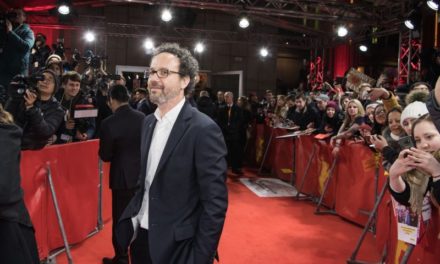Jacquelyn Wagner, the American soprano who conquered the German and Italian repertoires.
Jacquelyn Wagner interview – english version
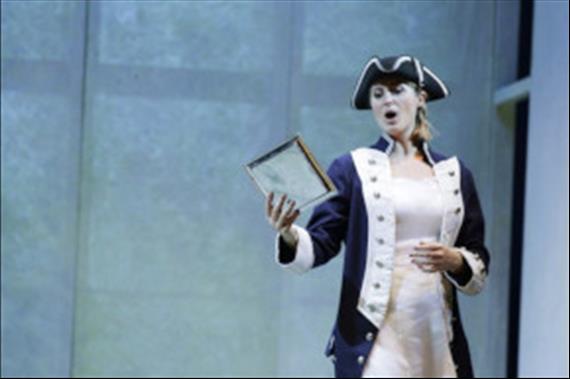
“I love Fiordiligi, she is a girl who experiences many emotions, but I am also in love with Arabella”. “Mimi is always wonderful to sing, but also a strong woman like Giovanna d’Arco, and Violetta, the fire and death she brings on her love journey.”
interview by Roberto Tirapelle
Jacquelyn Wagner, soprano of American origin – is now in demand in the major theaters of Europe – she has got a so much deep appreciation by the most important newspapers. Among all “With her lovely clean and focused sound”(The New York Times), or “silvery tone”, “a natural dignity and vocal command that make her performances highly impressive” (Opera News). We had the opportunity to reach Mrs. Wagner (also present in Italy with two productions in Milan, Teatro alla Scala in 2017 and 2018), for deepen her interesting career very close to the German repertoire but which also touched the most popular Italian composers. And has not escaped us the aspect that an American artist can penetrate Strauss, Wagner, Mozart, Beethoven, Webern.
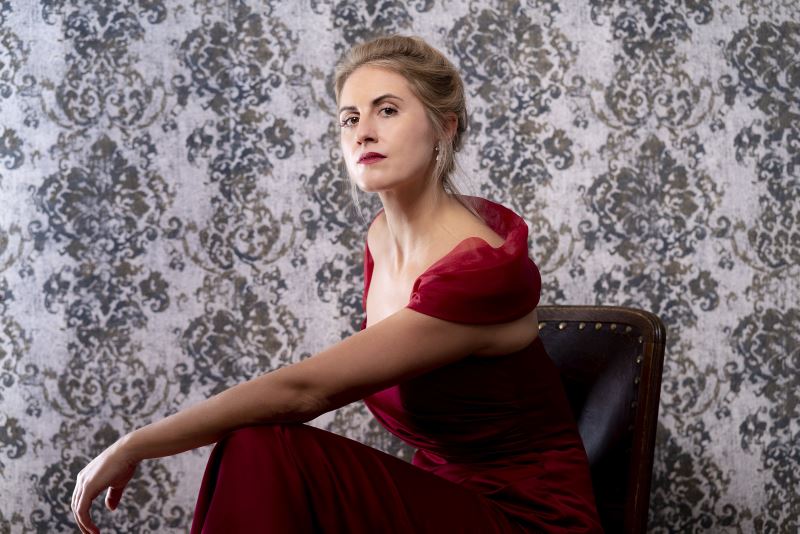
How was your vocation for opera born?
“I always sang as a child, and always an octave above my classmates. I loved singing more than anything all through my childhood, and then my parents found some very good teachers, and they helped me to develop my voice into something that was a possibility for a profession. I always wanted to be a singer, so with the possibilities of great teachers that my parents provided, a dream to sing, and God’s direction and help, it eventually became a reality, one that I am so grateful to have.”
You were trained as a singer first in the United States, and then in Germany. Did you find a difference in schooling and tradition between the two countries?
“I completed all of my schooling in the United States. I had a scholarship after my Master’s Degree was completed, in Köln. I studied for 3 months German Lied. But after that, just sought other teachers out on my own to continue studying. I now study privately with an American singer, Deborah Polaski. The difference in the lessons with my American studies and then here in Germany weren’t so different from each other, but I did notice that there was a bit of a different approach to how to teach the voice lessons than what I had had in America. But not such a huge difference, as one could expect, just a few approaches. For example, text was very important with my German teacher in Köln. In America, it was more in how to produce the sound for a healthy flow to the text, but with his approach, it was more important the color of the words and meaning, as to how the sound was being produced to color the text. Both have their importance, and I’m very grateful that I could have both!”
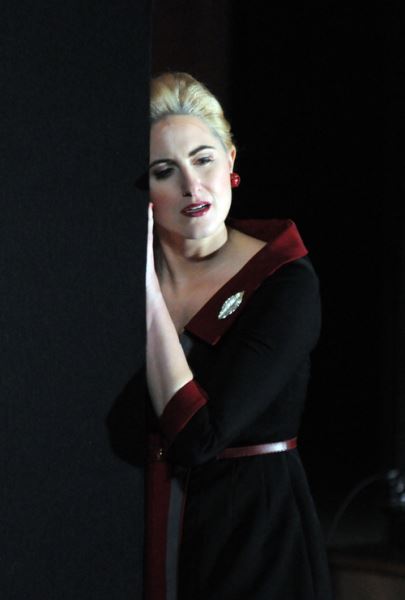
Is it accurate to say that in Germany you have specialized in some iconic roles from operas of composers such as Wagner, Strauss and Mozart? Of each of these three composers, which character do you find most satisfying, both vocally and interpretatively?
“Well, I’m not sure if I would be a specialist in anything, but I do get hired to sing lots of Mozart, and more and more Strauss and Wagner. Of Strauss and Wagner, there are so many other roles that I haven’t sung, and probably won’t sing (for example, Elektra, or Brünnhilde). But I am really enjoying my exploration of the roles that I can sing today. Mozart has given me a great beginning and preparation for Wagner and Strauss, simply because Mozart needs very pure, consistent and even control of the phrases. Using that in Strauss and Wagner’s operas only makes things much easier to sing! As for which character that I like the most, it’s a hard choice. I really love singing Fiordiligi in “Cosi fan tutte” because she is a girl that goes through so many emotions through the whole opera, and her emotions are so beautifully composed in her arias and duets. However, I’m also completely in love with the role of Arabella in Strauss’ “Arabella”. She also travels through many emotions through the opera, although she doesn’t change who she is by the end of the opera as Fiordiligi does. But her love story moves me very much, and it’s so satisfying to come to the end of the opera and say “…Take me for who I am”. I love happy endings!!!”
You have also devoted yourself to Italian opera, most notably Verdi and Puccini. Which ones of their roles have intrigued you the most?
“Well, the classic Mimi is always beautiful to sing, and has such gorgeous moments in the music, that I’m tempted to say Mimí simply for that reason. However, I think that I enjoy playing a bit stronger of a woman, say in “Giovanna d’Arco”. To play a role of a real person that had such conviction and that never swayed from what she believed until death is very very powerful. Although, Violetta in “Traviata” is simply beautiful as well, and the fire that she can bring to her journey of love and then to death is heart stopping, and so satisfying to live with her in that opera. I guess, the genius’ of Verdi and Puccini makes it very hard to choose a favorite!!”
You have recently made your debut as Handel’s Alcina to rave reviews: how difficult is it to tackle one of the most challenging Baroque roles while at the same time singing the big standard repertoire, Verdi, Wagner, Puccini, Strauss etc?
“At first, I tried to approach it with the same way that I would sing any other Mozart or Strauss role–lots of long phrases, controlled breath control, at the same time of trying to bring out the color that baroque music requires. But, after a while of rehearsing, I realized that I was allowed a lot more permission to sing very quiet piano at moments that aren’t often possible in the bigger repertoire. And, being able to change ornamentation at almost every rehearsal was also a very liberating feeling too. But I think the biggest thing I had to remember when I was not singing Alcina was to not go too intimate with volume and feeling but to put the sound on a different scale again. But, I had prepared it singing as if it was any other standard piece, so jumping back into other things proved not as difficult as I had anticipated, but still had its challenges!”
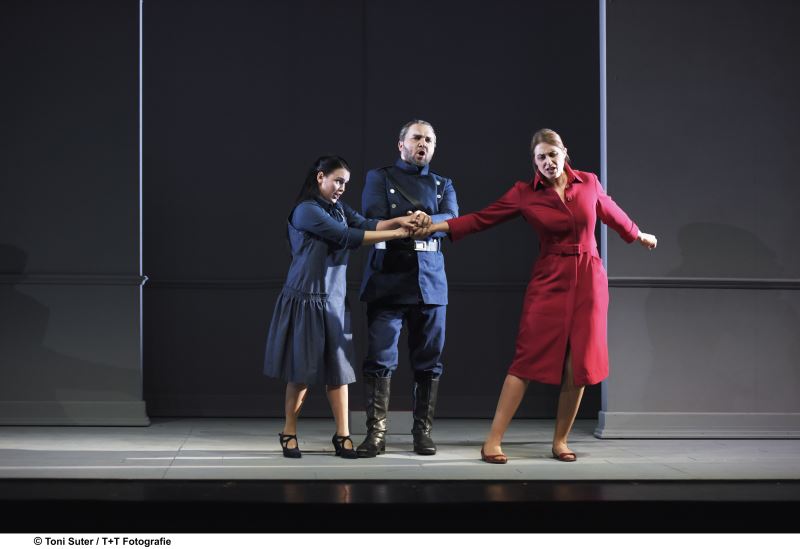
About Italy. You sang at La Scala in Milano, first in 2017 in Meistersinger and then in 2018 in Fidelio. Could you share with us something about your Milan experience and the roles you sang? “I was totally mesmerized by the Italian culture and life in Milan. It is magical to me! The busyness of the streets in the morning of all the men dressed in their perfect Italian suits, and seeing life go by in a totally different way than in New York, or Berlin, or even Paris, was so beautiful! There is rush to life, but at the same time, a sense that everyone has time for at least an espresso at the bar on the corner, or to stop and talk to a friend.
And the sounds and smells of the city was also something I really enjoyed! The food is, of course, fantastic, but what I enjoyed the most was sitting at a cafe and watching the Italian way of life around me tick by. It was captivating. I really hope that I will be back soon. I absolutely loved my time there! The roles that I sang were also very special. It was my first Meistersinger, so that was already a big deal for me, personally. But the cast, the whole back stage crew, all of the assistants, were so wonderful for my time there! I really felt immediately at home. I was so appreciative of that! With Fidelio, it was a bit different. I didn’t have the luxury of being in Milan very long since I jumped in to help with the shows after the Leonore couldn’t sing. So, I didn’t have the chance to know everyone very long, as you normally do when rehearsing such an opera. However, I couldn’t have asked for a better team of people to help me jump in last minute. They are all so professional, so prepared, and also very dedicated to their work that I simply had to be prepared to jump in and remember the scenic directions. They helped with every detail that I needed to make the nights work without a problem. I’m very grateful for that, and also for the wonderful, short time that I could enjoy Milan again!”
Would you like to sing in a musical or perform a composition of a contemporary composer in an American theater?
“I must be honest, I am not a musical singer. I do not know how to properly “belt” like the musical singers do, and how to be doing so many shows like they do! So, I will leave the musicals to the professionals!! But, I would love to sing something in America that was composed by a contemporary composer. There are some beautiful pieces that have been recently premiered, and to be involved in such a process must be really exciting!”
Would you like to return to Italy, and why not at the Arena of Verona?
“Oh I would love to! I absolutely love Italy! Every experience that I have had in Italy, whether performing or personal trips, has been so wonderful. I love the people, culture, different feelings of the areas, language, and overall enjoyment of life. And why not in Verona? Many years ago, when I came to Italy for a summer program in Spoleto while I was still studying in America, I took a trip with some friends for a night to Verona to see “Il Trovatore”. I was astounded at everything I saw, and to also see how the acoustics just carry the voices without problem to the top of the rows (which is where i was sitting!!) If given the chance to sing there, I would take it without question!”

(Thanks to Tim Weiler, O-PR Communications)

